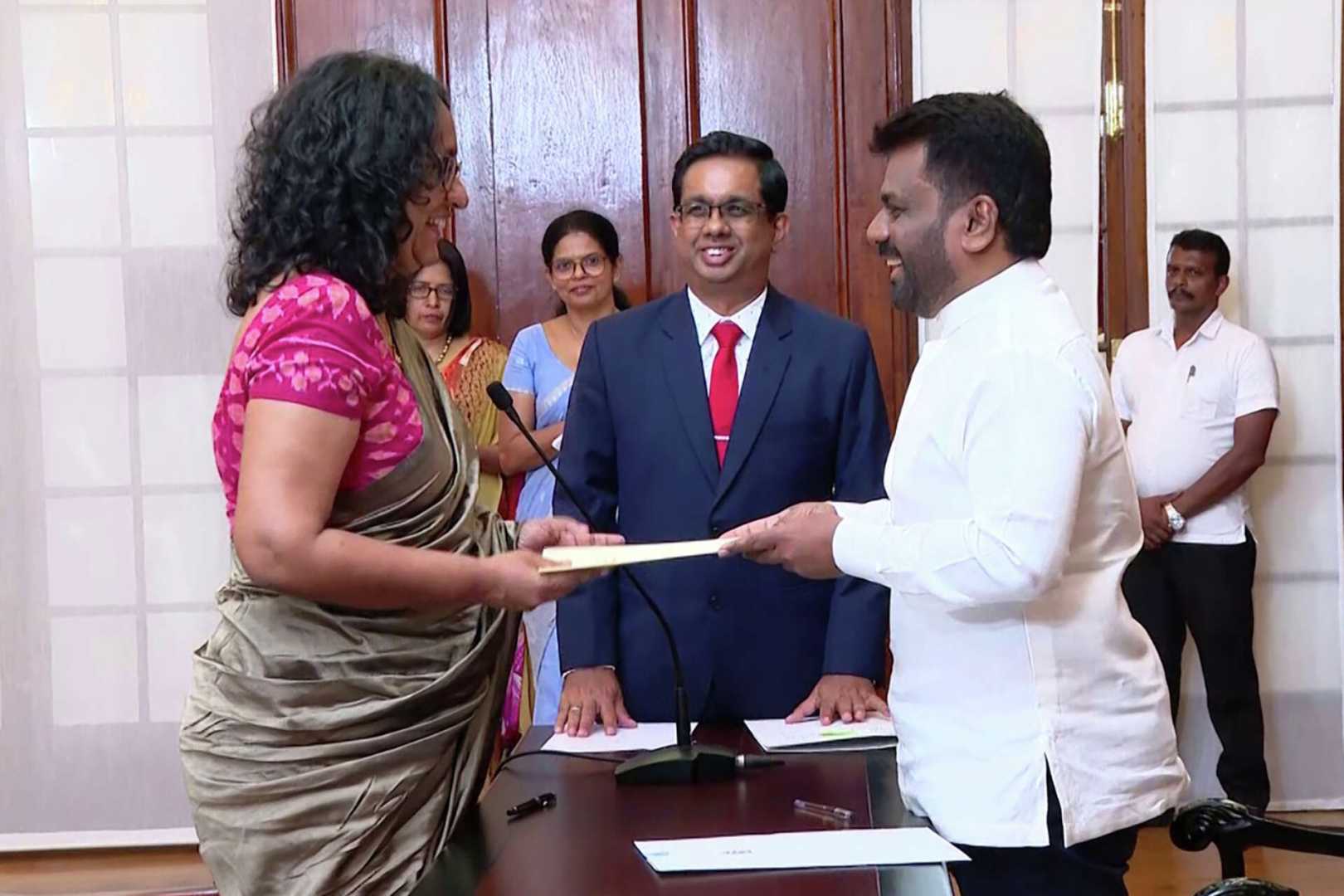News
Harini Amarasuriya Sworn in as Sri Lanka’s New Prime Minister Amid Economic Challenges

Sri Lanka appointed Harini Amarasuriya as its new Prime Minister on September 24, 2024, marking her as the third woman to assume the role in the nation’s history. The swearing-in ceremony was held at the Presidential Secretariat in Colombo, as announced by the Sri Lanka President Media. This decision comes as part of the new government formation under President Anura Kumara Dissanayake.
Anura Kumara Dissanayake, aged 55, assumed the presidency following his election victory as a candidate of the National People's Power coalition. He brings with him a background deeply rooted in Marxist economic policies, though the coalition, including his Janatha Vimukthi Peramuna party, has shifted towards more centrist positions in recent years. In addition to his presidential duties, President Dissanayake will also manage key government portfolios, notably finance, economic development, and tourism, reflecting his intent to tackle the country’s significant economic hurdles.
Harini Amarasuriya, previously a college professor and first-time lawmaker since 2020, brings a diverse academic background and expertise to her new governmental responsibilities. She holds a doctorate in social anthropology from the University of Edinburgh and will administer additional portfolios, including education, media, and women and children affairs. Her appointment continues the legacy of female leadership previously demonstrated by Sirimavo Bandaranaike, the world’s first female prime minister, and her daughter Chandrika Bandaranaike Kumaratunga.
The new government faces immense economic challenges, as Sri Lanka endeavors to overcome its most severe financial crisis in 70 years. President Dissanayake has expressed a commitment to reconstructing a political culture that addresses public dissatisfaction. However, his proposals to reduce taxes and revisit an existing $2.9 billion agreement with the International Monetary Fund have stirred concerns among investors, potentially affecting a critical $25 billion debt restructuring process.
Among the notable appointments in the new administration is Vijitha Herath, a seasoned legislator since 2000, who will oversee foreign affairs and public security. Despite his political longevity, President Dissanayake’s coalition holds a minimal presence in the current parliamentary configuration, with only three seats out of 225, which may drive him towards establishing an interim government and possibly calling for a snap general election.
The recent political changes follow the turbulent events of 2022 when Sri Lanka suffered a devastating economic collapse. A severe foreign exchange shortage crippled essential imports like fuel, medicine, and cooking gas, leading to widespread protests and the eventual resignation of former President Gotabaya Rajapaksa.
Before Dissanayake’s official assumption of power, outgoing Prime Minister Dinesh Gunawardene resigned, paving the way for Amarasuriya’s appointment and the formation of a new cabinet, tasked with steering the country through its fiscal and political difficulties.
Reporting by Uditha Jayasinghe, with additional contributions from Shilpa Jamkhandikar and Pushkala Aripaka. Edited by YP Rajesh and Alex Richardson.












